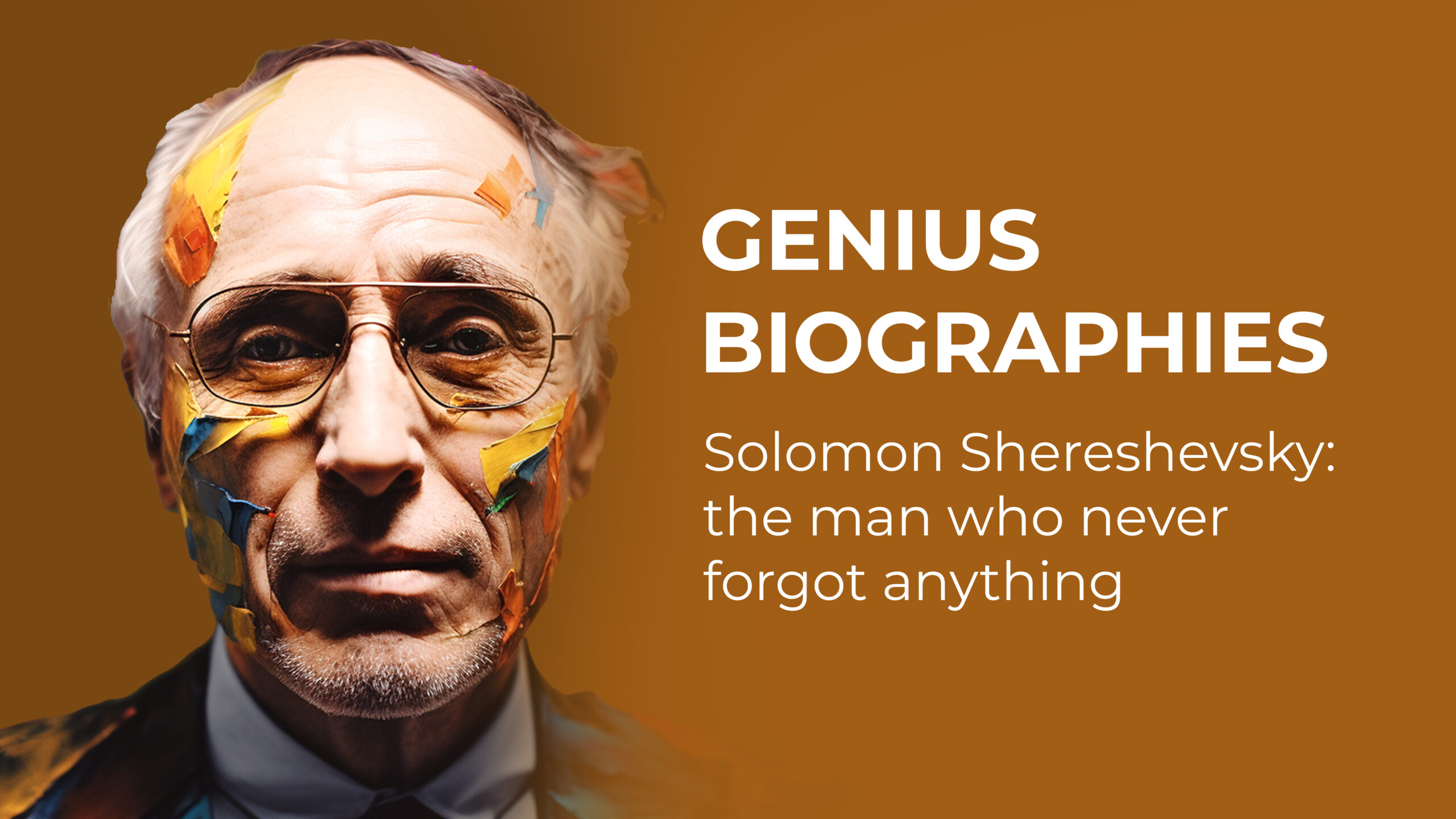Solomon Shereshevsky: the man who never forgot anything

Solomon Shereshevsky was being shouted on. Why wasn’t he taking notes in an important meeting? Shereshevsky was surprised: why does anyone need to take notes? Don’t they always remember it all?
It was the day Shereshevsky realized that other people around him forget things. And people realized that Shereshevsky had a photographic memory. Like an elephant. He never forgot anything at all. He could repeat each and every word everyone had spoken in that meeting. Or in a meeting held a year prior!
He could remember complex maths formulas without knowing anything about it. He never forgot a poem he heard - even if it was in a foreign language and he didn’t understand it. He had a flawless memory.
Isn’t bulletproof memory wow?
Imagine you never forgot anything. Wouldn’t that be awesome?
Unfortunately not for Shereshevsky. As he grew older, Shereshevsky found his memory was more of a problem. How would you feel if you never forgot any sad moments of your life at all? Shereshevsky was constantly overwhelmed.
In fact, studies done on depressed people have found this. Depressed people tend to recall negative memories a lot more frequently.
You don’t really want the memory of an elephant. But a good memory is beneficial. It makes you a better problem solver. It makes you more reliable. It helps you have better social interactions.
Cognitively too. Working on improving your memory helps make your brain and neural pathways stronger. Keeps you younger.
So how do you selectively have a powerful memory?
Russian neuropsychologist Alexander Luria was fascinated by Solomon Shereshevsky. He studied Shereshevsky for over 3 decades. It was Luria who cracked the code as to why Shereshevsky has such a powerful memory.
Shereshevsky is wired differently. He has synesthesia. Which means stimulation of one sense produced reaction in another. Hearing music would make him see colours.
How Shereshevsky was unique is that his synesthesia was extremely strong. All his 5 senses lightened up together. Music would make him see colours which would make him feel the sensation of taste. He experienced every word he read or music he heard or food he tasted with multiple senses.
Because of which, anchoring of memories happened in a better way. Every instance in his life was captured in a memory that had multiple hooks in his mind. Hence Shereshevsky never forgot.
Essentially, that’s what memory is. Association + anchoring.
-
Association = creating connections between new information and existing knowledge.
-
Anchoring = associating new knowledge to specific cues so as to recall them.
By becoming better at anchoring, anyone can improve their memories. Anyone can remember names of 30 strangers they meet at a workshop. Or remember a whole poem. Or remember everyones phone numbers.
The practical way to anchor memories
How do you harness the power of memory without being overwhelmed like Shereshevsky? One ancient technique stands out: the Method of Loci, also known as the Memory Palace.
The Method of Loci isn’t new. In fact, it dates back to ancient Greece. Legend has it that the poet Simonides of Ceos invented it after a tragic event at a banquet. He was the only one who could identify the guests crushed under the rubble because he remembered where each guest had been sitting.
How the method of Loci works is you anchor a new piece of information to a place in your mind. Pick a route. A familiar route. Maybe the road from your office to home. Now attach your memory to landmarks on the road.
To recall the memories, simply take a mental walk through the road in your mind - observing the memory sitting at each landmark.
This method takes practice. You can make it easier by using emotions to make the memories stickier. Include sound and smell on the road. Create a narrative - make the journey an adventure. Exaggerate the imagery.
The more intense the emotion you can build with your mental stroll, the stronger the anchor, the more long term the memory.
Treating depression with the Method of Loci
Dr Tim Dalgleish conducted an experiment at the University of Cambridge. He taught the Method of Loci to 15 depressed people. Depressed people recall sad memories more frequently. So Dr Dalgleish guided them to save and recall happy memories to regulate their emotions when required.
This Method of Loci was compared against another group of depressed people who tried to remember memories by repetition of information. The Method of Loci was much better in building memory. Association is better than repetition!
Depressed people could recall happier memories in a better way. And recalling happy memories helped depressed people repair their mood.
Action Summary:
- To improve your memory, associate something new with old and known. And anchor the new with as much vividness and detail as you can.
Enjoyed this biography?
Subscribe to get new biographies delivered to your inbox weekly.
We respect your privacy. Unsubscribe at any time.